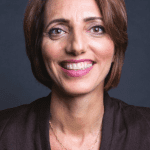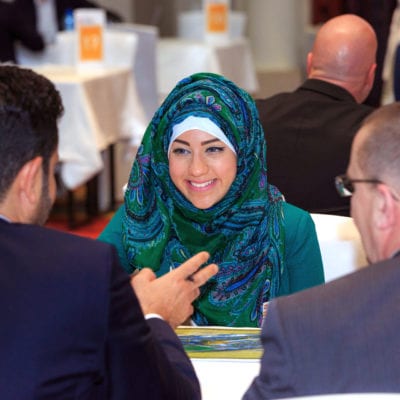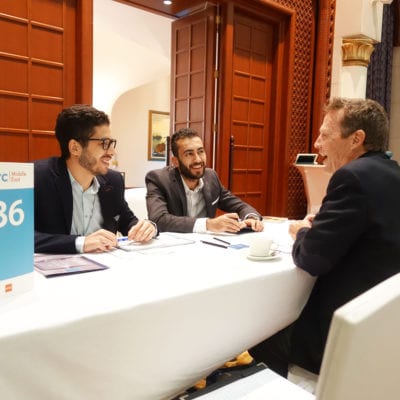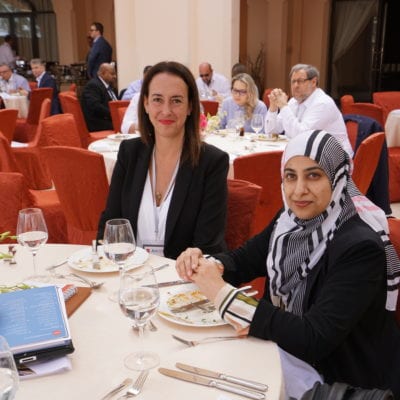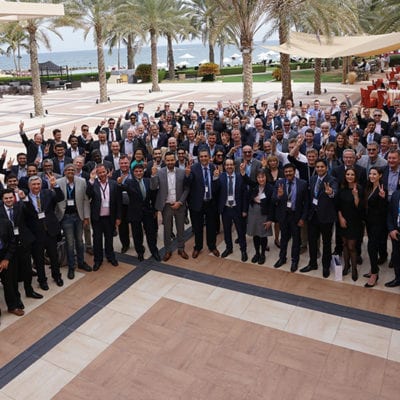Arc Middle East 2018

The Leading Middle East Architects Forum
February 2-5, 2018
Oman, Sultanate of Oman
Program
The program below is from 2018
Seminar timings and/or content may be varied at our discretion.
- Day 1
- Day 2
- Day 3
- Day 4
Thursday, February 8
Friday, February 9
Synopsis
This presentation will provide an overview of the demand fundamentals driving each of the real estate markets within the GCC – Bahrain, Kuwait, Oman, Qatar, Saudi Arabia and the United Arab Emirates. The demand fundamentals assessed will include population, demographics, economics and tourism indicators. This presentation will then go on to identify real estate investment and development activity within the GCC’s tourism and hospitality, residential, retail and office markets. This presentation will conclude by reviewing emerging risks within the GCC’s real estate market, with an overall view on investment activity and risk-reward profiles.
Biography
Synopsis
As designers of the built environment, we all believe in and understand the importance and the power of the built environment. In that environment there exist influencing factors that can range in impact from negative, or pathogenic, to positive, or salutogenic. In a space or building in which true wellbeing is possible, our work as designers will fall on a scale of environmental impact wholly beyond the point at which we “do no harm”. But do we truly understand where this point lies? When we reach the true pinnacle of wellbeing design, we will be creating spaces which foster self-actualization, with a deep and profound sense of meaning. The environment will connect with the needs of a wide variety of occupants, interconnecting them in a place which visually and figuratively communicates and promotes feelings of comfort, community and inspiration. Let’s start the conversation on providing spaces that do more than just function efficiently, which start to find ways to regenerate and elevate the body and spirit. Let’s use the environment to care for people.
Biography
One of the first WELL APs, WELL Faculty, and Fitwel Ambassadors, Lida is an architect by training and an interior architect in practice with a strong focus on sustainability and its impact on the people in the spaces we design. Lida serves as HKS’ Director of Wellbeing Design, utilizing her years of design and sustainability expertise to spearhead thought leadership and efforts incorporating the best of scientific and medical research into the firm’s design strategies across all of HKS’ offices. She currently serves as a WELL Faculty member, was a reviewer for the WELL AP test development, and is an SME for Greenbuild in Health and Wellbeing. A firm believer that the design of space has a profound impact on physical and mental health, she supports all HKS design staff with tools and information to truly elevate design and the occupant experience,Saturday, February 10
Synopsis
The session will focus attention on two key questions that leaders at all levels need to consider.
First:
“Why would anyone want to follow me?”
The thrust here is to examine leadership behaviours that inspire others to respond positively towards enhancing performance at all levels.
The second question is:
“Why would anyone want me in their team?”
No matter how high we are in an organization, there are usually stakeholders above us that require us to perform well. The focus upon followership is to reflect on the behaviours that enhance team performance at all levels and to identify the characteristics of different types of follower. In turn, a deeper understanding of followership components will enable the leader to select better courses of action to deal with leadership and organizational challenges. Put simply, an effective follower and an effective leader are two sides of the same coin.
Biography
Synopsis
1.Role of Architecture
The main and most fundamental purpose of architecture is a means to define ourselves. Architecture gives form to our experiences that create meaning. It contains the collective acts that forge community. It allows for the evolution of civilizations.
2. The reality of our Gulf Cities
What our architecture in our cities failed to do is to allow us to have the seamless experience of who we are in any given day. What the outer mirrors to the inner, what we have projected, is a fragmented sense of self as well as community.
We have created cities that are made up of stand-alone objects that are disconnected and are only in relationship with other objects such as the car. We have created cities that are made up of a series of disjointed spaces. The type of experience that is created as result of this is flat, disorientating as well as alienating.
3. Understanding Context
Creating meaningful experiences through architecture comes from an understanding of the place, the people that it is addressing, from understanding context.
4. Case Study of Contextual Architecture
Mleiha Archeological Centre, in Sharjah UAE.
Biography
Sumaya Dabbagh is the founder of Dabbagh Architects. She is a Saudi architect educated in the UK with diverse experience in architecture, interior design, and project management spanning over 20 years. Following an education at Bath University under the guidance of the late Peter Smithson and Sir Ted Happold, Dabbagh began her career in London and Paris in the early 90’s. Her return to the Gulf region in 1993 was part of a quest to gain a deeper understanding of her own identity, a unique mix of influences and sensitivity towards both western and middle eastern cultures. In 2002, after completing the Childrens’ City Project while at Schuster Pechtold and Partners, Dabbagh started to carve her own path as an independent architect. Since then she has completed a diverse range of projects which include commercial offices, retail, residential, educational, as well as cultural projects. Her multi award winning Mleiha Archaeological Centre building is a recent addition to her renowned portfolio of sensitive, contextual designs with a feel-good quality. Through her work in architecture and design in the Gulf region Dabbagh’s quest to bridge the cultural and gender gaps continues. Dabbagh has participated in a number of conferences to share some of her theoretical ideas regarding architecture. She was an instrumental part of the team who set up the RIBA Gulf chapter in 2009 and is passionate about bringing more awareness to the region on the value of good design. She is the Chair of the RIBA Gulf Chapter. In October 2017. She was awarded the Lifetime Achievement Award by Identity Design Awards, as recognition of her contributions to date.Sunday, February 11
Venue
Shangri-La Barr Al Jissah Resort
Against the dramatic backdrop of rugged mountains and touching the pristine waters of the Sea of Oman, Shangri-La’s Barr Al Jissah Resort and Spa is set among stunning scenery and home to three spectacular hotels. Close to the old city of Muscat, Muscat International Airport is just 45 minutes away.




